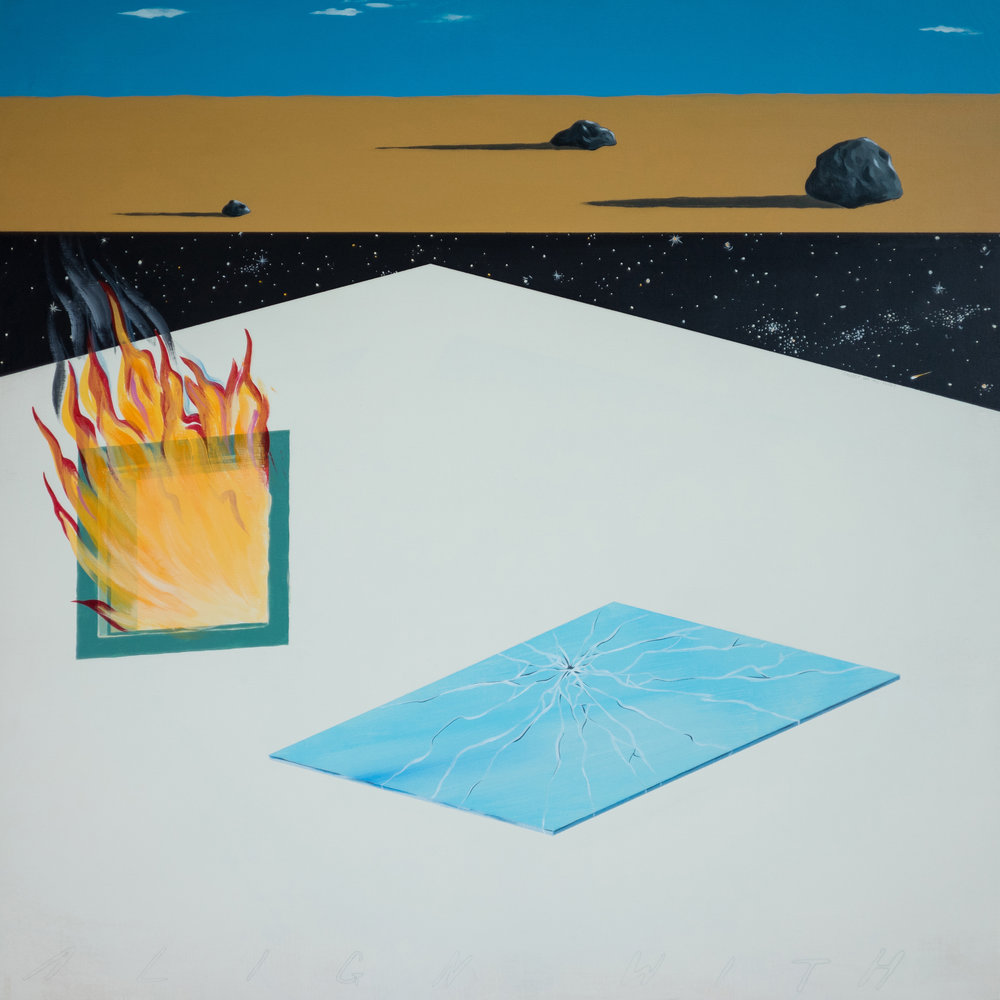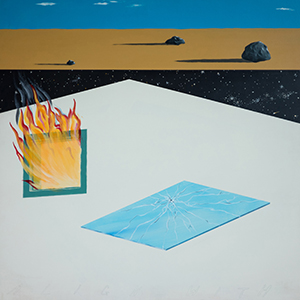 Michael C. Sharp is no stranger to the world of electronic music, being a member of Austin’s psych heavy Sungod. His previous experience, however, has been that of a drummer, which does not at all come through on Never Enough Time. While the five songs on this tape are built largely upon interlocking loops, there is nary a drum sound to be found. Instead it is a rich suite of synth excursions, with a bit of tasteful guitar thrown in for good measure, culminating in an elegant and powerful record.
Michael C. Sharp is no stranger to the world of electronic music, being a member of Austin’s psych heavy Sungod. His previous experience, however, has been that of a drummer, which does not at all come through on Never Enough Time. While the five songs on this tape are built largely upon interlocking loops, there is nary a drum sound to be found. Instead it is a rich suite of synth excursions, with a bit of tasteful guitar thrown in for good measure, culminating in an elegant and powerful record.
Two new shows just for you. We have squeezed out two extended release episodes for this weekend to get you through this week. They contain mostly new songs but there's also new issues from the vaults. The first show features music from Rider/Horse, Mint Field, Robert Aiki Aubrey Lowe, Anastasia Coope, ISAN, Stone Music, La Securite, Bark Psychosis, Jon Rose, Master Wilburn Burchette, Umberto, Wand, Tim Koh, Sun An, and Memory Drawings. The second episode has music by Laibach, Melt-Banana, Chuck Johnson, X, K. Yoshimatsu, Dorothy Carter, Pavel Milyakov, Violence Gratuite, Mark Templeton, Dummy, Endon, body / negative, Midwife, Alberto Boccardi, Divine. Cow in Maui from Veronika in Vienna. Get involved: subscribe, review, rate, share with your friends, send images! |



 A fitting follow-up to 2015's Only Red, Andy Grant again delivers a strong suite of harsh, aggressive electronics, but with a slightly different mood to it. Anger and frustration still abounds, but it seems to be shaded with a self-aware futility and nihilism that is very fitting and appropriate for the title.
A fitting follow-up to 2015's Only Red, Andy Grant again delivers a strong suite of harsh, aggressive electronics, but with a slightly different mood to it. Anger and frustration still abounds, but it seems to be shaded with a self-aware futility and nihilism that is very fitting and appropriate for the title.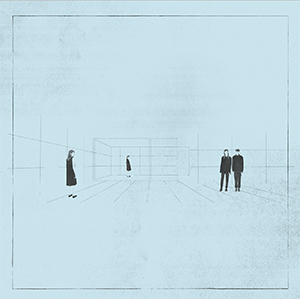 It is hard to not feel twinges of nostalgia on Marker’s self-titled debut. The stiff drum machine beats, the lush synthesizers and chorus-heavy guitars call to mind a number of bands without ever actually sounding like them, feeling like a fitting devotion to a style without ever trying to copy its most notable practitioners, resulting in a warm, alluring album that has managed to sneak under the radar this year.
It is hard to not feel twinges of nostalgia on Marker’s self-titled debut. The stiff drum machine beats, the lush synthesizers and chorus-heavy guitars call to mind a number of bands without ever actually sounding like them, feeling like a fitting devotion to a style without ever trying to copy its most notable practitioners, resulting in a warm, alluring album that has managed to sneak under the radar this year. This is the debut album from an ambitious project that brings together half of Wire (Matthew Simms and Graham Lewis), idiosyncratic synth supernova Thighpaulsandra, and percussion virtuouso Valentina Magaletti. Naturally, any project where Thighpaulsandra is untethered by someone else's clearly defined aesthetic is destined to be a bit of a stylistic rollercoaster (even more so when Graham Lewis's own eccentricity is factored in), so UUUU is quite a freewheeling and disorienting affair at times, dabbling equally in prog, psych-rock freak-out, drone, krautrock homage, experimentation, and Lewis-style "pop" weirdness. It should also come as no surprise that UUUU's work feels quite spontaneous and improvisatory and occasionally errs into bombast and indulgence. Such moments are largely eclipsed by the times when everything gloriously locks into place, however, as this foursome almost always find a way to wrest some vistas of sublime beauty or flashes of transcendent inspiration from their wild and lysergic free-rock excursions.
This is the debut album from an ambitious project that brings together half of Wire (Matthew Simms and Graham Lewis), idiosyncratic synth supernova Thighpaulsandra, and percussion virtuouso Valentina Magaletti. Naturally, any project where Thighpaulsandra is untethered by someone else's clearly defined aesthetic is destined to be a bit of a stylistic rollercoaster (even more so when Graham Lewis's own eccentricity is factored in), so UUUU is quite a freewheeling and disorienting affair at times, dabbling equally in prog, psych-rock freak-out, drone, krautrock homage, experimentation, and Lewis-style "pop" weirdness. It should also come as no surprise that UUUU's work feels quite spontaneous and improvisatory and occasionally errs into bombast and indulgence. Such moments are largely eclipsed by the times when everything gloriously locks into place, however, as this foursome almost always find a way to wrest some vistas of sublime beauty or flashes of transcendent inspiration from their wild and lysergic free-rock excursions.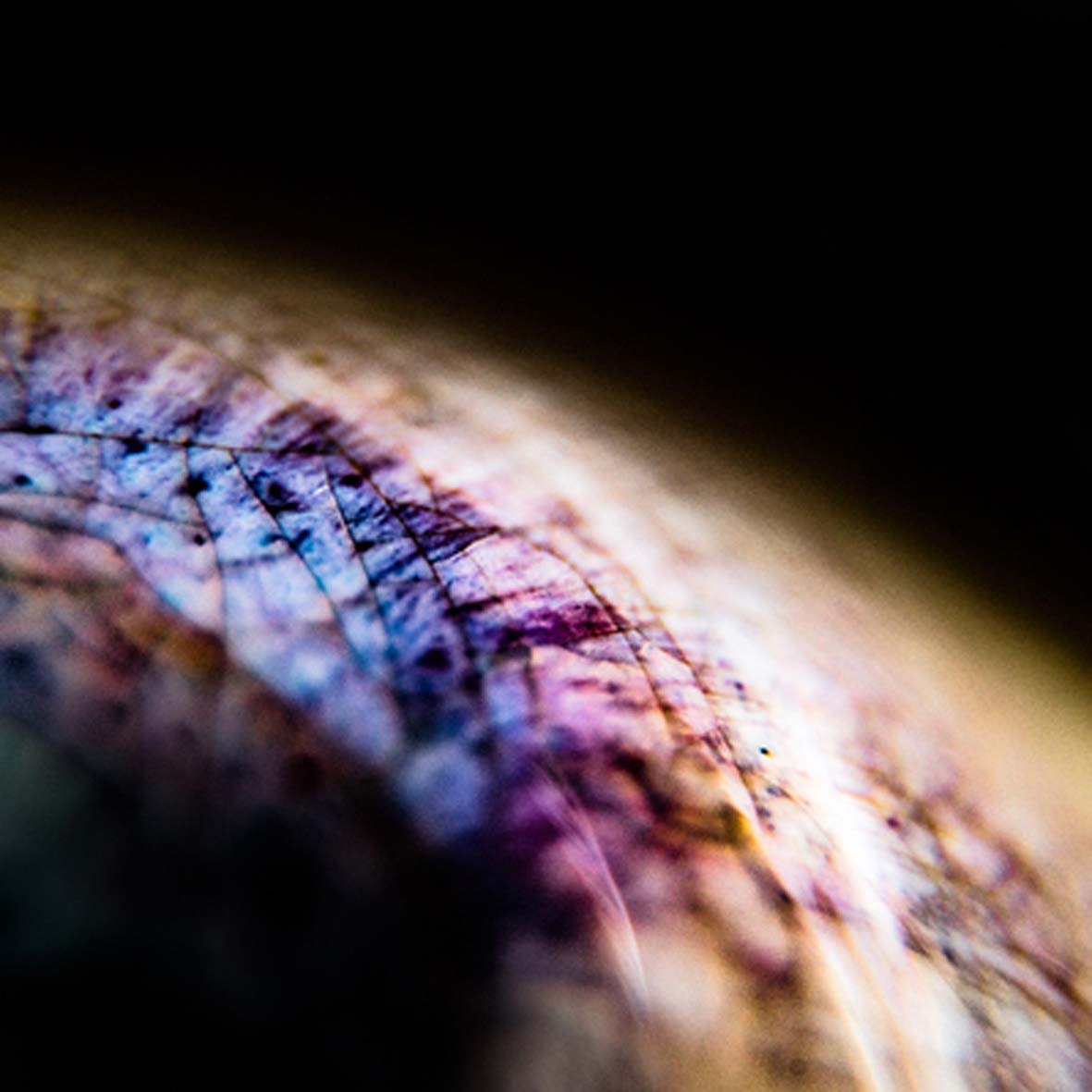 This latest EP is something of a daring experimental coda to this year’s excellent Borders, as studio wizards James Ginzburg and Paul Purgas attempt to translate their crushing, frequency-saturated onslaught into purely acoustic recording techniques. Obviously, there has been a lot of foreshadowing throughout the duo’s career hinting at this direction given Emptyset's longstanding fascination with architecture and natural resonance, but it was not until Borders that the essential missing piece was added to the formula: the viscerally biting snarl and rattle of a homemade zither. Given that Skin further constrains an already hyper-constrained vein of minimalism, this EP is primarily just for existing fans eager to see how well Ginzburg and Purgas handle pushing their vision to a seemingly self-sabotaging extreme, but a few of these simple variations survive the transformation with quite a lot of raw power intact.
This latest EP is something of a daring experimental coda to this year’s excellent Borders, as studio wizards James Ginzburg and Paul Purgas attempt to translate their crushing, frequency-saturated onslaught into purely acoustic recording techniques. Obviously, there has been a lot of foreshadowing throughout the duo’s career hinting at this direction given Emptyset's longstanding fascination with architecture and natural resonance, but it was not until Borders that the essential missing piece was added to the formula: the viscerally biting snarl and rattle of a homemade zither. Given that Skin further constrains an already hyper-constrained vein of minimalism, this EP is primarily just for existing fans eager to see how well Ginzburg and Purgas handle pushing their vision to a seemingly self-sabotaging extreme, but a few of these simple variations survive the transformation with quite a lot of raw power intact.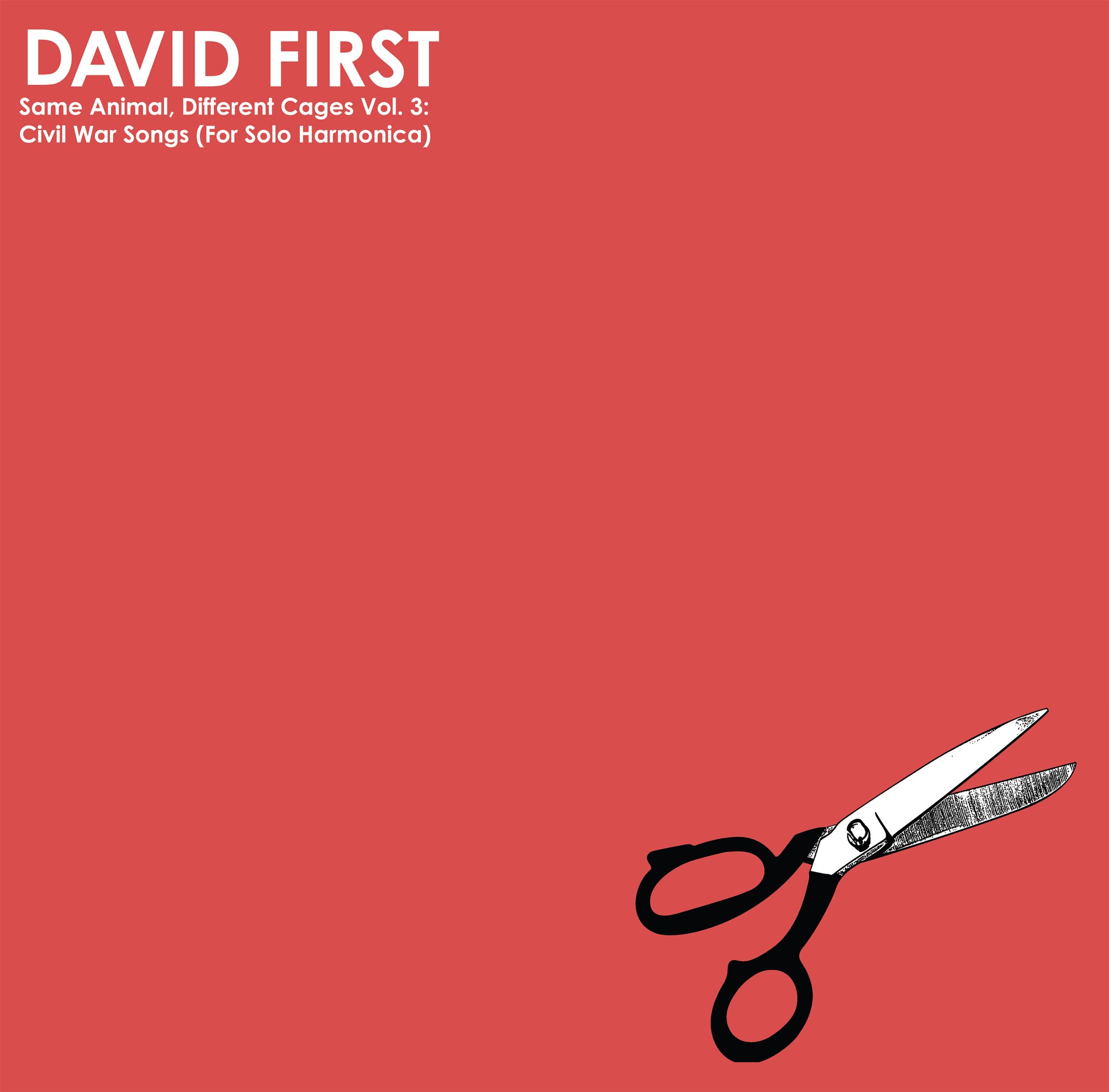 The third installment in David First's Same Animal, Different Cages album series (which are constructed from the use of a single instrument) is a contradictory piece of art. On one hand, it is clearly the most song-focused of the series thus far: a record of melodies and more conventional structures that contrast with the often pure experiments of the previous installments for guitar and analog synthesizer. However, by nature of the instrument used this time, a harmonica, I found it to be a more challenging work, but one that is still as rewarding as the releases that preceded it, and perhaps the most conceptually rich as well.
The third installment in David First's Same Animal, Different Cages album series (which are constructed from the use of a single instrument) is a contradictory piece of art. On one hand, it is clearly the most song-focused of the series thus far: a record of melodies and more conventional structures that contrast with the often pure experiments of the previous installments for guitar and analog synthesizer. However, by nature of the instrument used this time, a harmonica, I found it to be a more challenging work, but one that is still as rewarding as the releases that preceded it, and perhaps the most conceptually rich as well.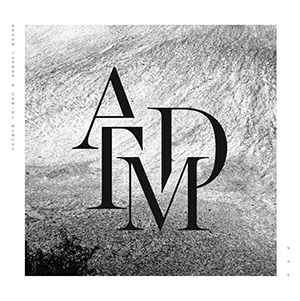 While the gargantuan, triple disc Sleeper from Daniel Menche is still relatively new, he and SIGE head Aaron Turner (he of an immense number of projects) also managed to find the time to record this collaborative LP. Recorded over a two year span, Nox is far more inviting and downright beautiful than I would have expected from two artists who have always shown hints of the sort in the past.
While the gargantuan, triple disc Sleeper from Daniel Menche is still relatively new, he and SIGE head Aaron Turner (he of an immense number of projects) also managed to find the time to record this collaborative LP. Recorded over a two year span, Nox is far more inviting and downright beautiful than I would have expected from two artists who have always shown hints of the sort in the past.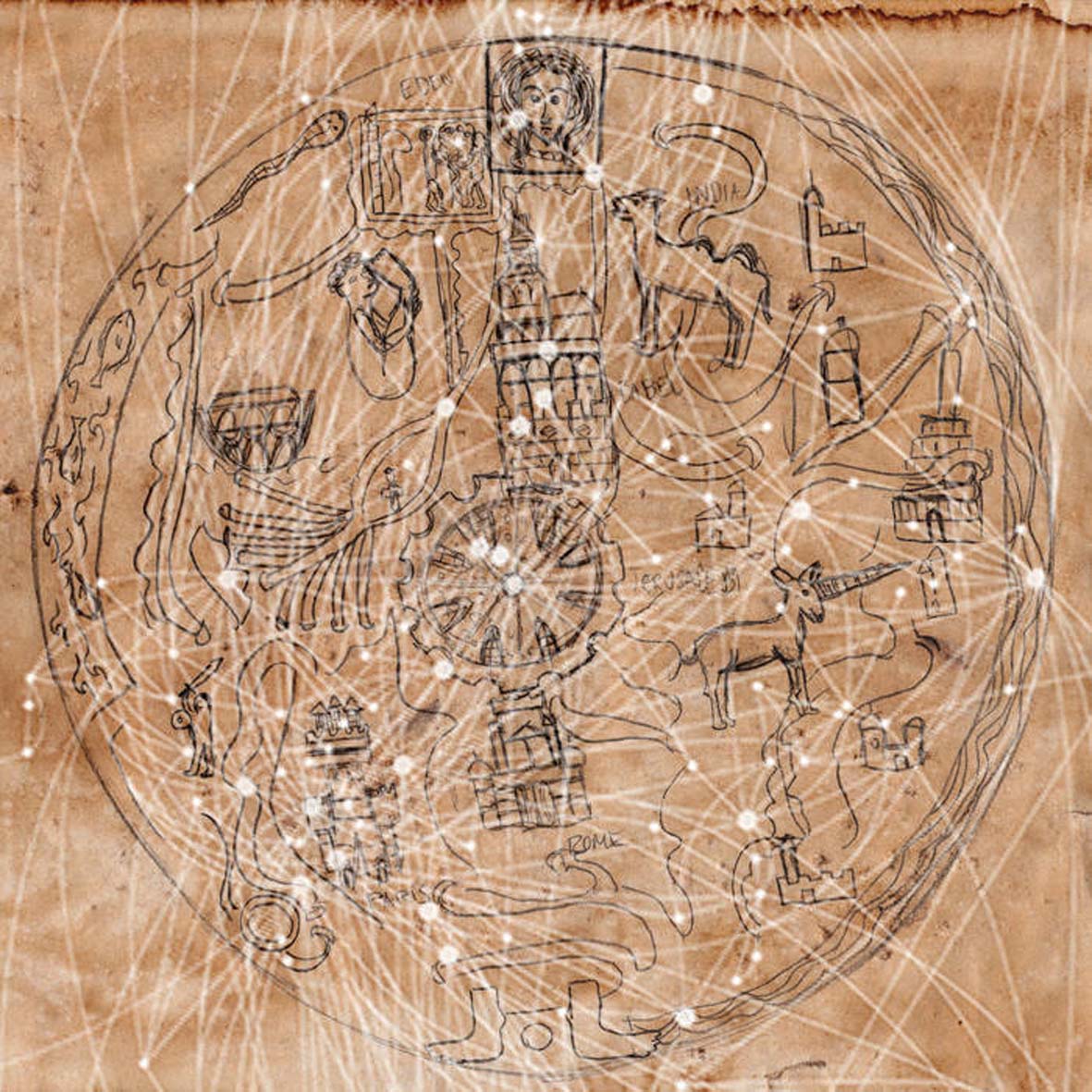 After two fine vinyl releases on Pomperipossa, Mark van Hoen and Mike Harding's mesmerizing sound collage project now takes a detour to Touch's Field Music imprint. While the transition to CD format does not seem to have made much of a structural impact (the album still feels like a single, abstract, and longform piece), Mappa Mundi is nonetheless a radically different album from last year's more musical A Perfect Blind. The abandonment of the more composed, melodic, and "structured" elements of their sound may seem like a deeply counterintuitive move after such a wonderful leap forward, yet Drøne prove themselves to be remarkably fluid and adept at changing their aesthetic to fit their conceptual inspirations. In this case, the stated objective is "tracing and describing the audio surrounding and occupying the planet Earth," which mostly translates into a hauntingly strange and mysterious immersion into a crackling entropy of phantom radio transmissions, squalls of static, choruses of insects, and creepily digitized voices.
After two fine vinyl releases on Pomperipossa, Mark van Hoen and Mike Harding's mesmerizing sound collage project now takes a detour to Touch's Field Music imprint. While the transition to CD format does not seem to have made much of a structural impact (the album still feels like a single, abstract, and longform piece), Mappa Mundi is nonetheless a radically different album from last year's more musical A Perfect Blind. The abandonment of the more composed, melodic, and "structured" elements of their sound may seem like a deeply counterintuitive move after such a wonderful leap forward, yet Drøne prove themselves to be remarkably fluid and adept at changing their aesthetic to fit their conceptual inspirations. In this case, the stated objective is "tracing and describing the audio surrounding and occupying the planet Earth," which mostly translates into a hauntingly strange and mysterious immersion into a crackling entropy of phantom radio transmissions, squalls of static, choruses of insects, and creepily digitized voices. Carla dal Forno's latest EP is an absolute stunner, distilling her dark pop genius into four perfect gems of dreamy, intimate, haunted, and endearingly ramshackle beauty. Aside from being four of the finest songs that she has ever recorded (any one of these pieces could be a single), The Garden is most striking for the improbable collision of influences that dal Forno seems to balance effortlessly: in a perverse way, this Australian dreampop chanteuese might be the most perfect and transcendent embodiment of the Blackest Ever Black aesthetic. While her songs are certainly catchy and propulsive (a inarguable anomaly in that milieu), The Garden's feast of hooks blossoms out of an ultra-DIY/underground backdrop of stark and gritty basslines, primative drum machine clatter, tape hiss, and warped electronics. At its best, The Garden sounds like a singularly muscular and half-sexy/half-unnerving dreampop album that is too well informed by the darker, uglier undercurrents of post-punk and early industrial to ever lapse into soft-focus navel-gazing.
Carla dal Forno's latest EP is an absolute stunner, distilling her dark pop genius into four perfect gems of dreamy, intimate, haunted, and endearingly ramshackle beauty. Aside from being four of the finest songs that she has ever recorded (any one of these pieces could be a single), The Garden is most striking for the improbable collision of influences that dal Forno seems to balance effortlessly: in a perverse way, this Australian dreampop chanteuese might be the most perfect and transcendent embodiment of the Blackest Ever Black aesthetic. While her songs are certainly catchy and propulsive (a inarguable anomaly in that milieu), The Garden's feast of hooks blossoms out of an ultra-DIY/underground backdrop of stark and gritty basslines, primative drum machine clatter, tape hiss, and warped electronics. At its best, The Garden sounds like a singularly muscular and half-sexy/half-unnerving dreampop album that is too well informed by the darker, uglier undercurrents of post-punk and early industrial to ever lapse into soft-focus navel-gazing.